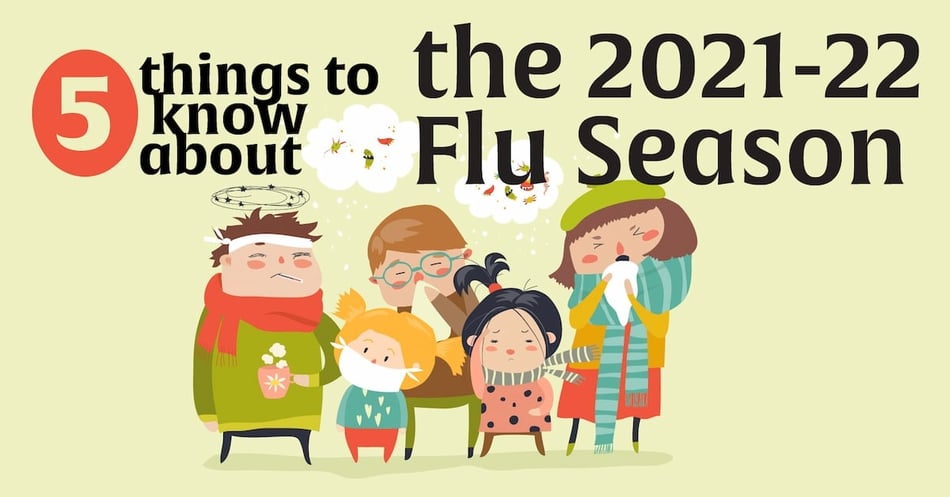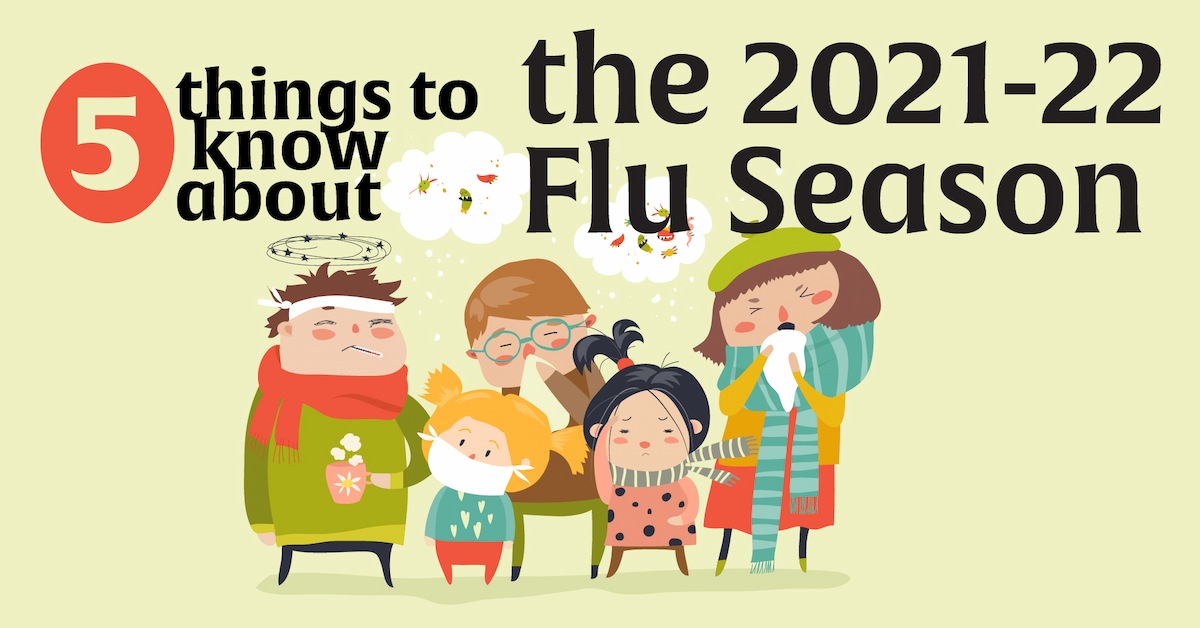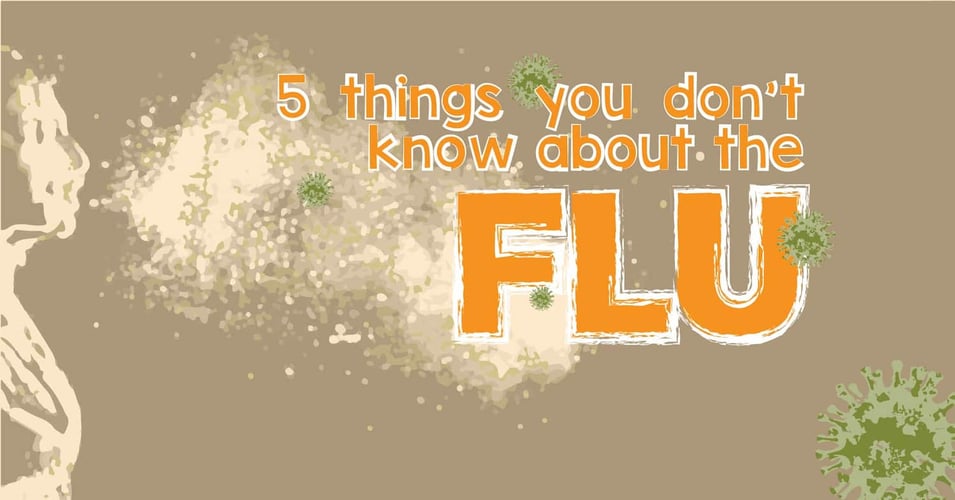5 Things To Know About the Upcoming Flu Season

 After more than a year of a global pandemic, we can all justify a bit of flu fatigue. We've been so busy dealing with COVID-19, that we may have few emotional resources left to deal with a regular flu season. In today's post, we'll highlight the most important topics to know about the upcoming 2021-22 flu season, helping you save some time and hopefully help plan for a safe and healthy winter.
After more than a year of a global pandemic, we can all justify a bit of flu fatigue. We've been so busy dealing with COVID-19, that we may have few emotional resources left to deal with a regular flu season. In today's post, we'll highlight the most important topics to know about the upcoming 2021-22 flu season, helping you save some time and hopefully help plan for a safe and healthy winter.
The flu, or influenza virus, circles the world every year. In a way, it's an annual pandemic that we have come to take for granted. Although far less lethal than COVID-19, the flu can kill up to 50,000 Americans per year. Last year, however, that number plummeted due to mitigation efforts targeting COVID-19: Where usually 26-30% of samples sent for testing come back positive, during the 2020-21 flu season, only .2% (that's POINT TWO percent) came back positive! Thanks to lockdowns, mask-wearing, hand hygiene, and social distancing, we kept the flu from spreading while keeping COVID-19 from spreading.
But what about this year? We no longer have the massive mitigation steps in place, so flu numbers are expected to go up again. Let's have a look at the 5 big stories related to the flu this year.
#1 This year's vaccines will all be quadrivalent. In past years, some vaccines had antigens for three known viral strains and some had four. This year, all available vaccines will have antigens to help us fight off four flu strains that are expected to spread widely.
#2 Flu vaccines are traditional formulations; none are mRNA vaccines. As with every previous year in recent history, there are flu vaccines that are egg-based (virus grown in chicken eggs), cell-based (virus grown in mammalian cells), and recombinant (virus combined with another virus to create antigen). Egg- and cell-based vaccines are deactivated vaccines, while recombinant vaccines don't use the virus at all.
#3 It is safe to get your flu vaccine and your COVID-19 vaccine at the same time. The FDA and CDC remind us to make sure to follow the correct schedule for COVID-19 vaccines and boosters (spacing them out as recommended for that specific vaccine). If you have to choose one to get first, it is recommended you get your COVID-19 vaccine. You should not get a flu shot if you are currently positive for COVID-19.
#4 You should get your flu vaccine by the end of October. Even if your area does not have high flu numbers, you should get the flu shot earlier. It takes about two weeks for your body to build up immunity, and once you have it, it will last you through the flu season.
#5 There is now a single test you can take to see whether you have flu or COVID-19. If you have flu symptoms, you should get tested for COVID-19 just in case, since the symptoms are extremely similar. There is now a test that will tell you whether you have the flu, COVID-19, or neither. While this test may not be available everywhere, it is something you can bring up with your doctor.
If you take away one thing from this post, we hope it is a reminder to get your flu shot this year. It's the best way to help control the spread of influenza, and protects you from a severe case should you become exposed. For additional information about this year's flu vaccines, check out the CDC's Key Facts About Seasonal Flu Vaccine.
![EOScu Logo - Dark - Outlined [07182023]-01](https://blog.eoscu.com/hubfs/Eoscu_June2024/Images/EOScu%20Logo%20-%20Dark%20-%20Outlined%20%5B07182023%5D-01.svg)




